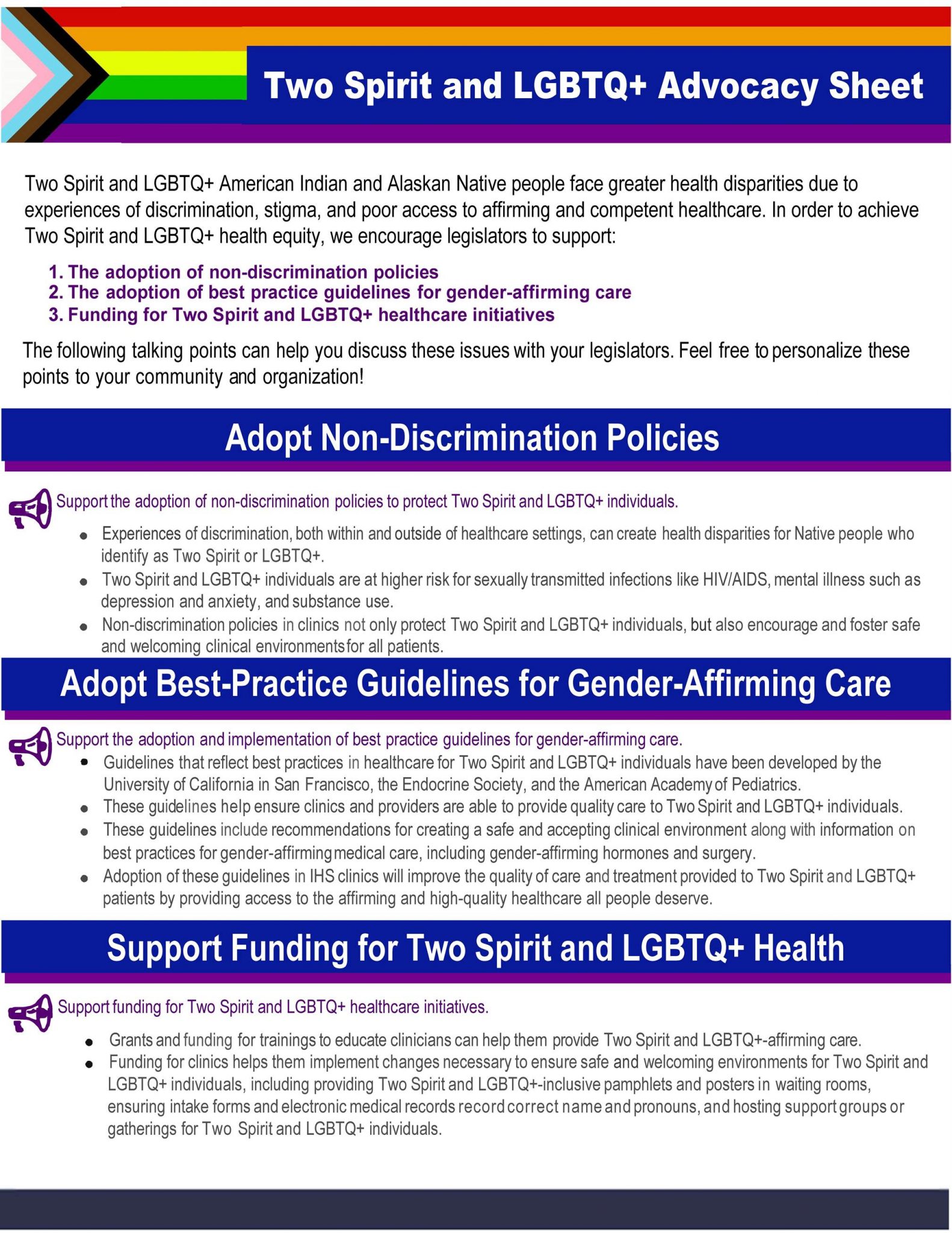by Tara McCoy
The past month has brought to the forefront issues of privilege, systemic racism, and persistent discrimination against racial and ethnic minorities in the U.S. As a result, we’ve seen the importance of advocacy and activism in the struggle for equality. The Black Lives Matter protests have spurred movements all over the United States and abroad. Through this activism, we’ve seen public pushes to examine systemic racism and police brutality.
Thanks to the persistent work of advocates and policymakers, the Supreme Court ruled last month that the Civil Rights Act of 1964 also forbids discrimination on the basis of sexual orientation and gender identity. The past month has demonstrated the power of advocacy in making progress and change, but advocacy doesn’t just come in the form of protests or discussions with policymakers. Advocacy can take the form of petitions, research, or even community mobilization. My past year interning with Indian Health Service (IHS) at the Northwest Portland Area Indian Health Board (NPAIHB) broadened not only my knowledge of Indigenous health but also my definition and understanding of advocacy and my own role to play.
For the past year, I have worked as a Virtual Student Intern with his and NPAIHB. While I may have started as an intern, I have grown to be an advocate for Two Spirit and Native LGBTQ+ health. Inequities manifest themselves in different ways – including employment opportunities, income, and access to safe housing – but arguably none are as visible as those seen in health outcomes and access to health services. Throughout my time working with NPAIHB, I have had the opportunity to research health care access, health outcomes, and barriers to well-being for Two Spirit and Native LGBTQ+ people. I’ve assisted with a literature review, which found Two Spirit and Native LGBTQ+ individuals face inequitable access to health services, as well as discrimination and stigma in healthcare and social environments, and a disproportionate amount of adverse health outcomes.
We’ve created a tool for advocates to use when talking to policymakers about improving access to affirming care for Two Spirit and Native LGBTQ+ people. The recommendations on this document drew from many sources, including the literature review, a resolution of the NPAIHB, and conversations with the Native Advocacy Workgroup for Trans Health. They include the adoption of non-discrimination policies, best practice guidelines for gender-affirming care, and funding for clinics.
Prior to my internship, I thought an advocate was someone who marched in protests and talked with policymakers. As a self-proclaimed introvert, I didn’t feel that my skills matched those needed to be an advocate. However, through the process of research, collaboration, and investigation, I undertook throughout my time working with NPAIHB, I realized all of the different avenues available to generate and promote change. From protests to research, to community mobilization and petitioning – the avenues available to us are numerous. Advocacy and activism can even manifest in community-based projects or discussions about inequity and inequality with friends and family.
My time at NPAIHB has taught me how to be not only a better advocate – but also a better ally. I encourage anyone reading this to advocate, in whatever way best fits their individual gifts, for the health and well-being of Two Spirit and Native LGBTQ+ individuals at the personal, local, tribal, state, and federal levels. I began this work as an intern. I’ve become an advocate.
Find the Advocacy Sheet below or download a PDF: Two Spirit and LGBTQ Advocacy Sheet.
Return to Two Spirit and LGBTQ+ Blog
